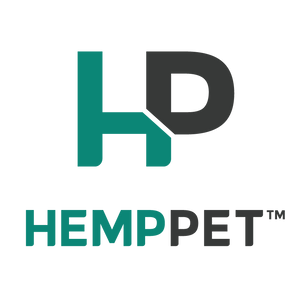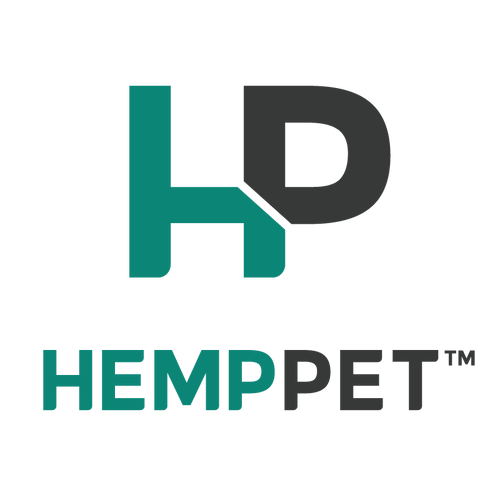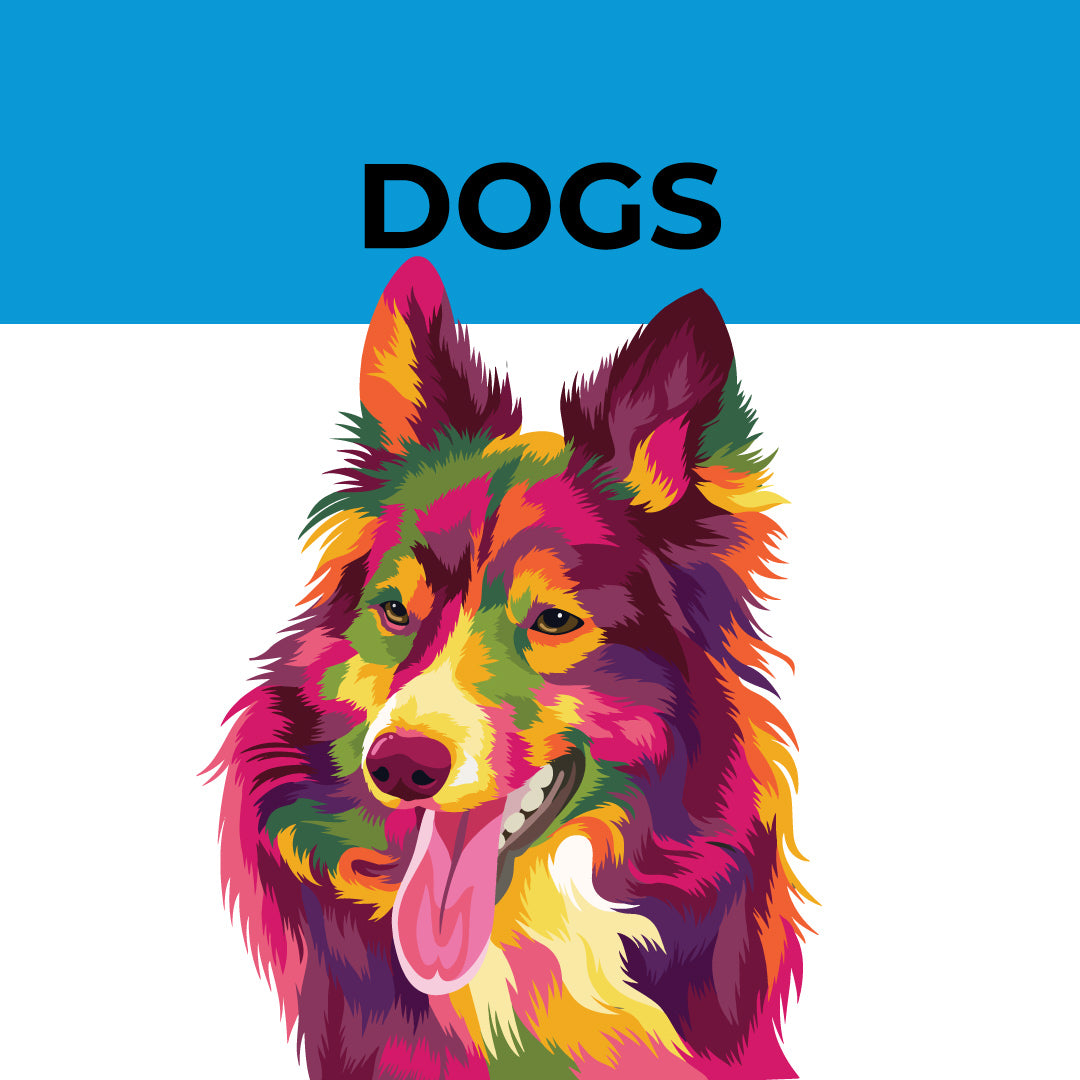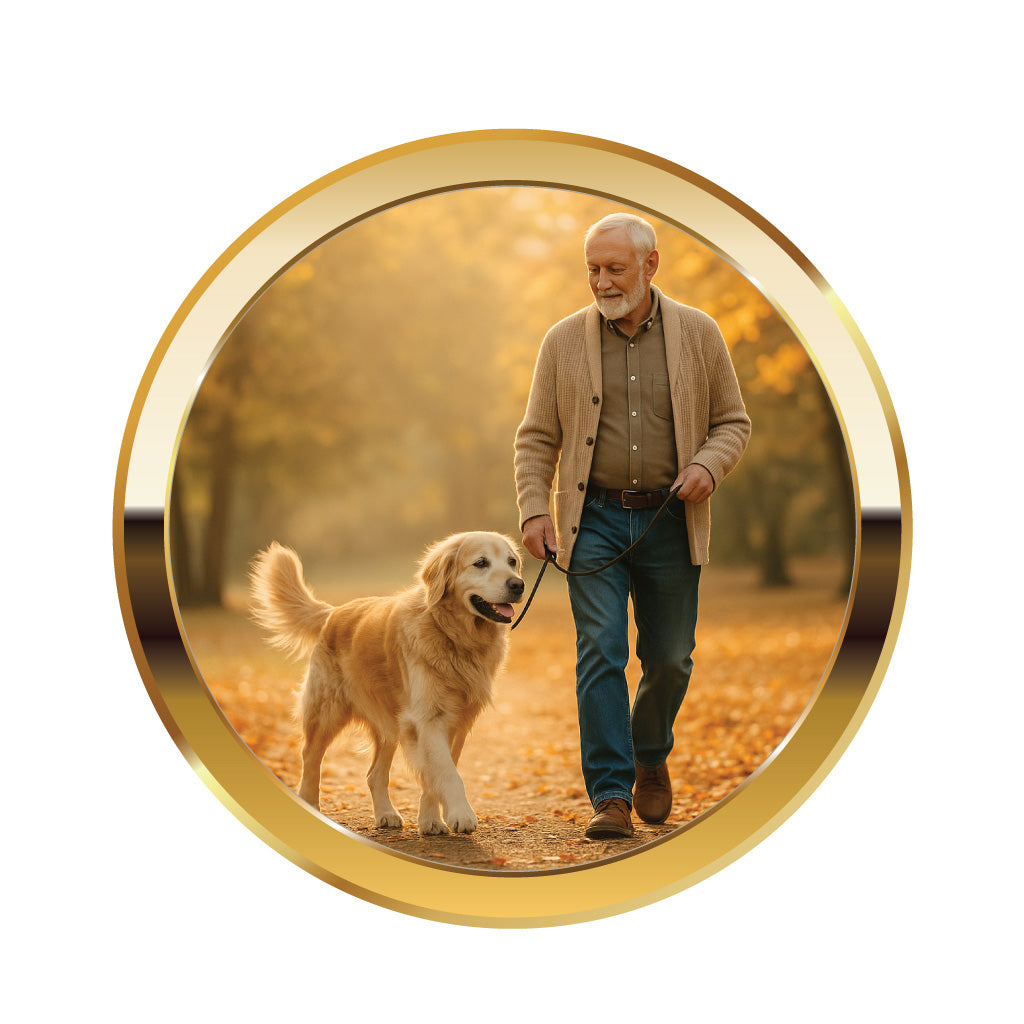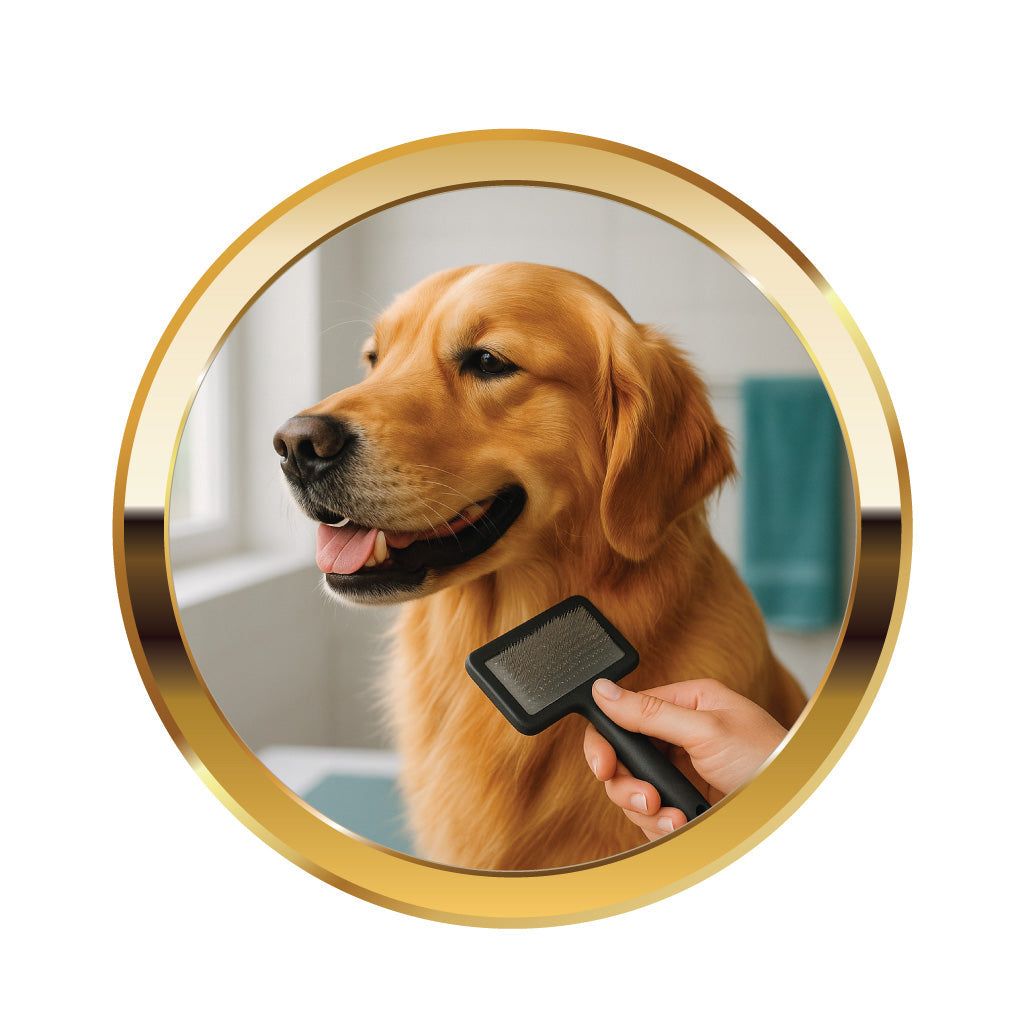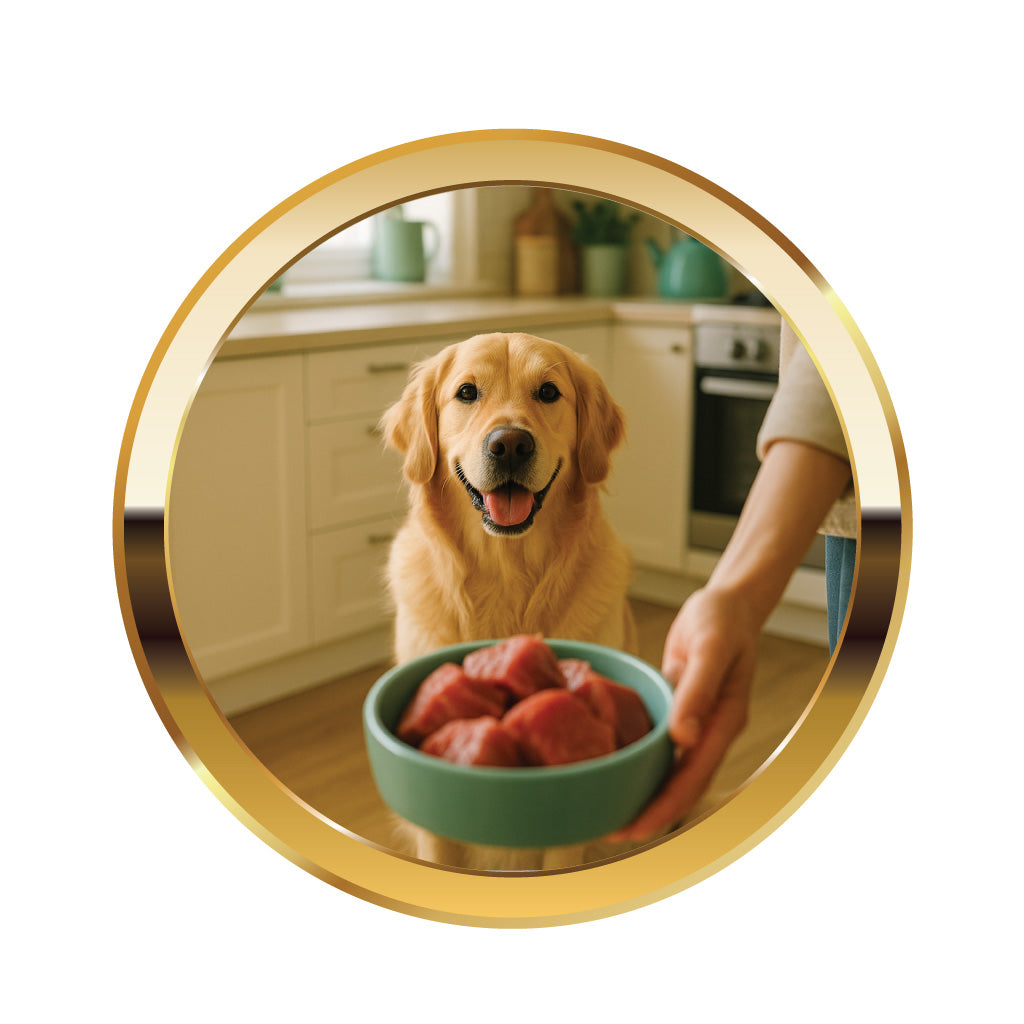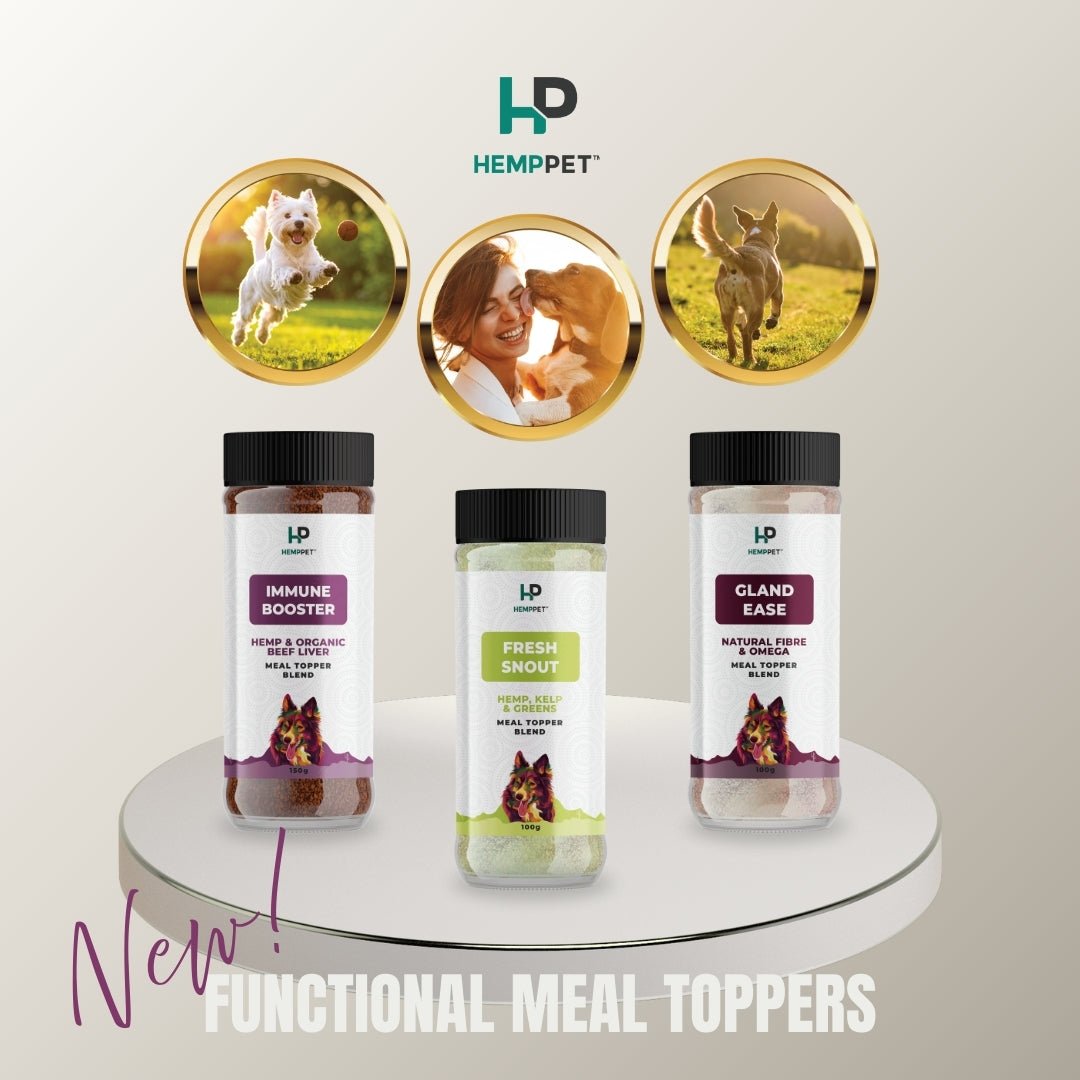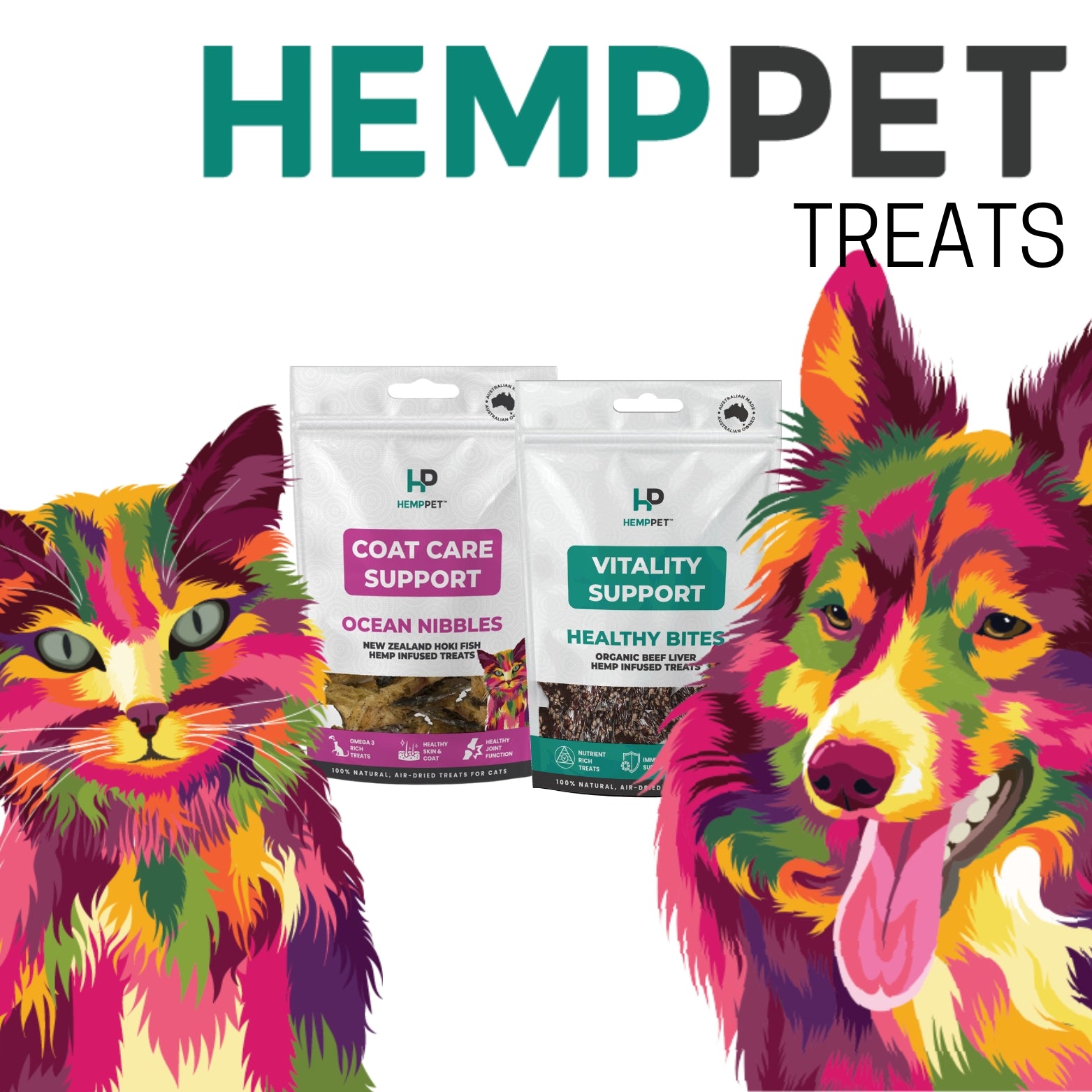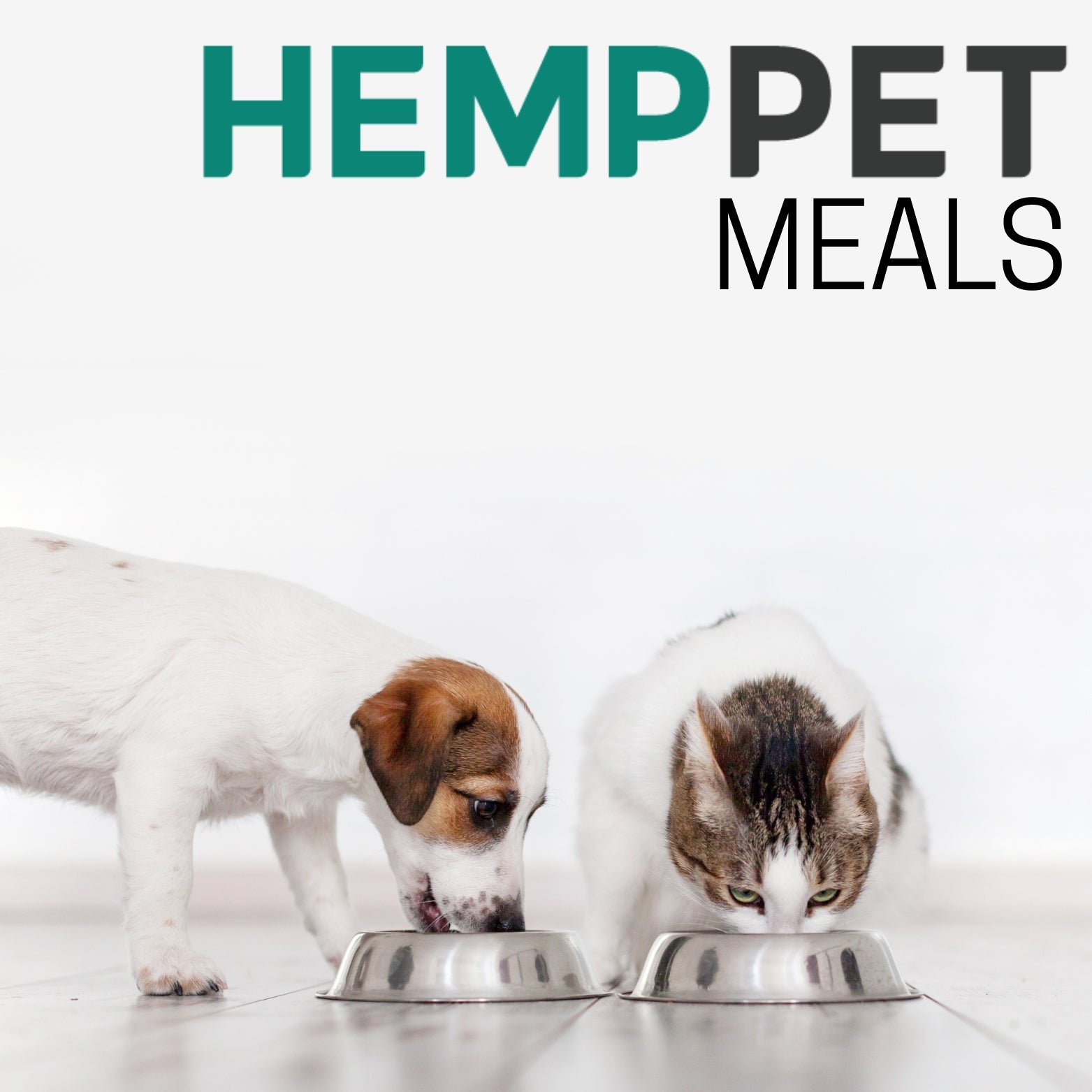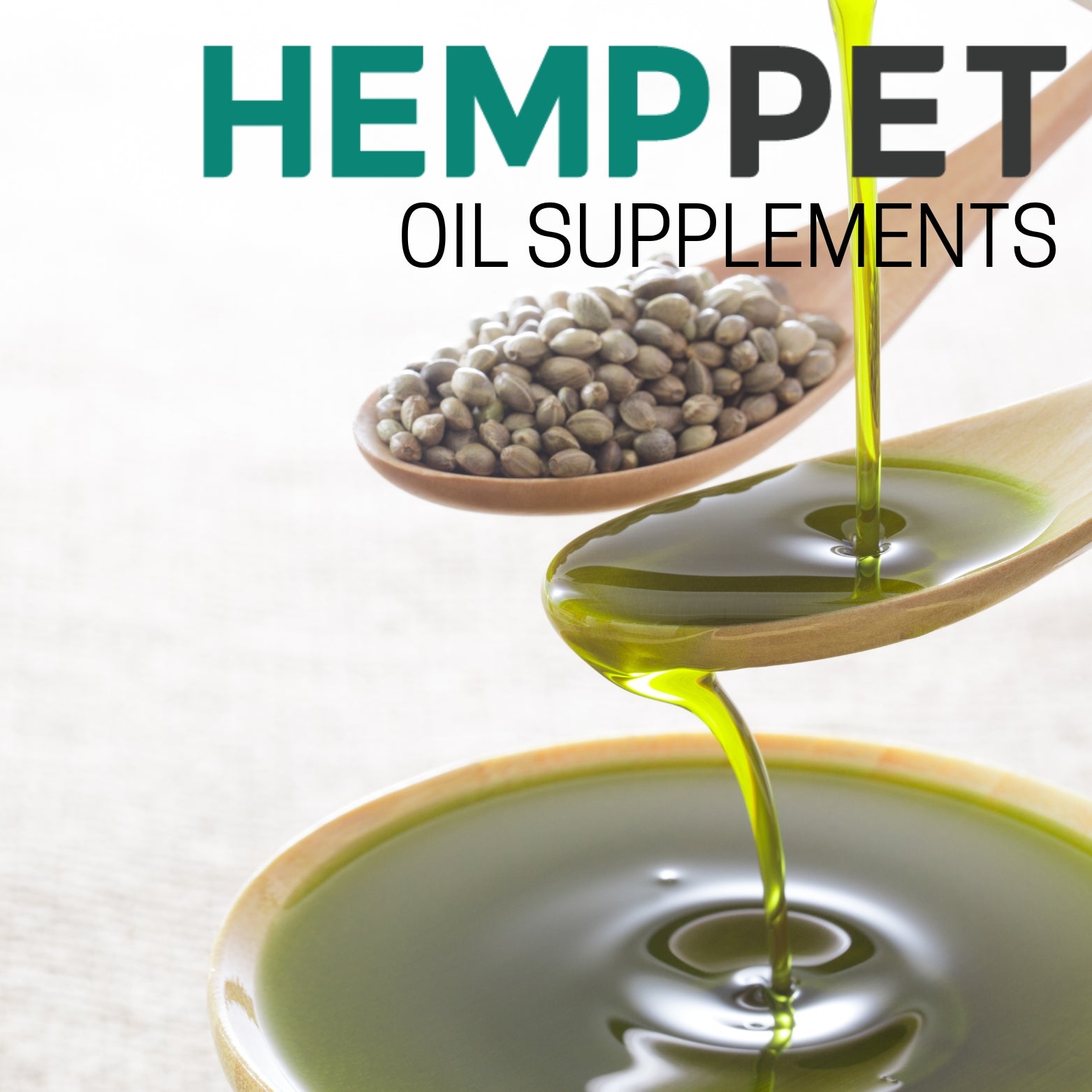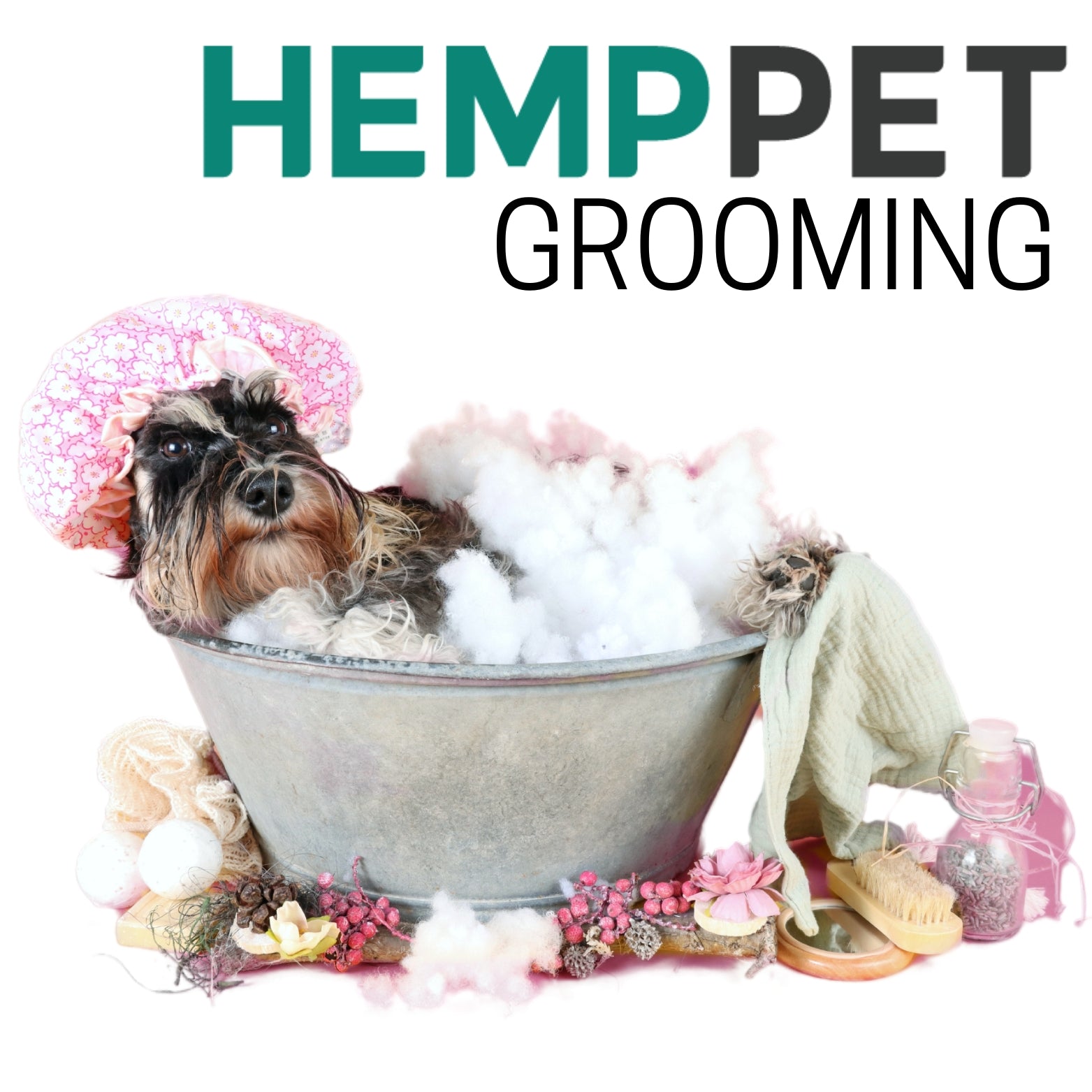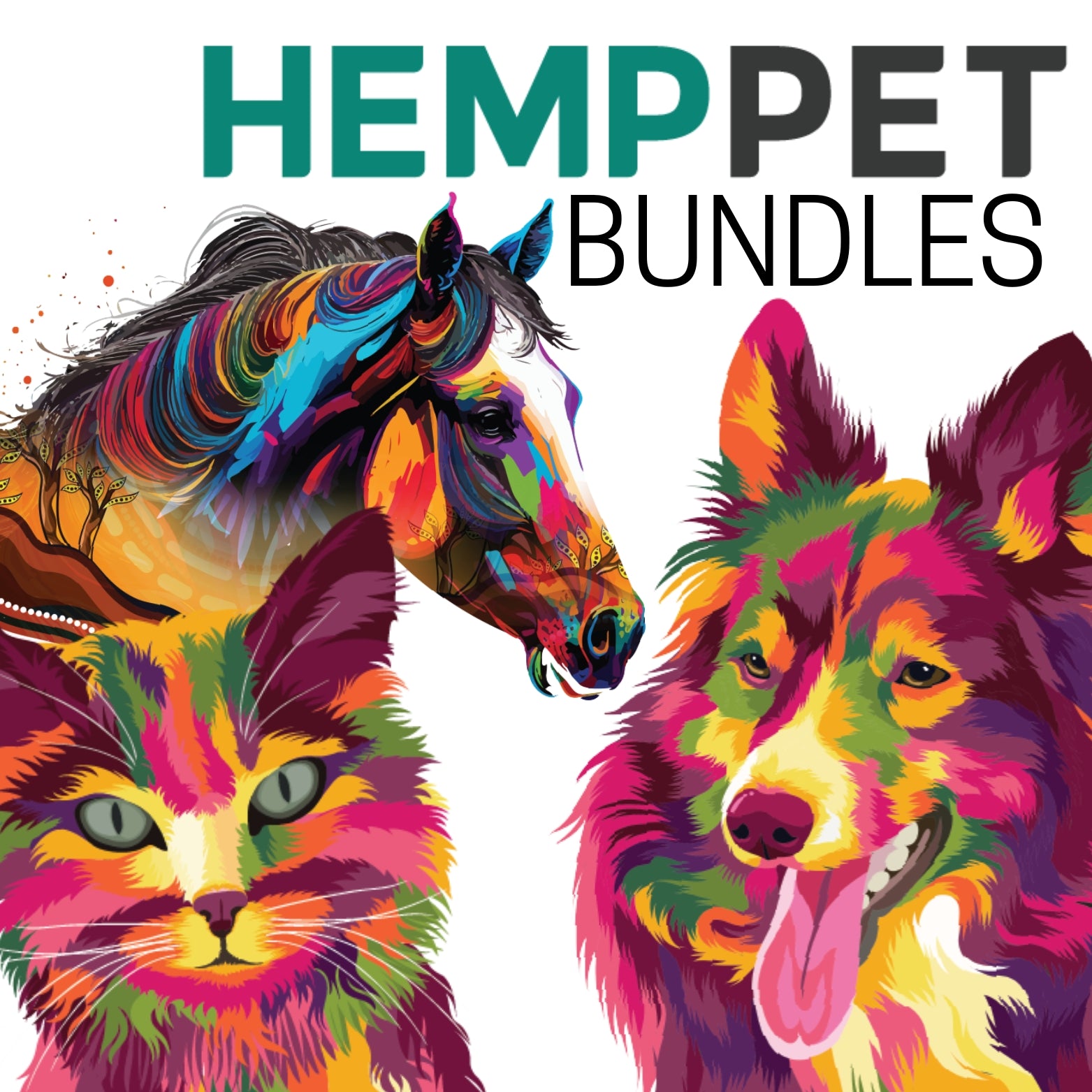From plaque reduction to fresher breath, discover why Ascophyllum nodosum is the most researched kelp for canine dental care.
Everything pet parents (and vets) need to know about kelp for dogs - what it is, which type matters for teeth, the clinical studies, safety & dosage, and how kelp compares to dental chews. This is your all-in-one reference.
TL;DR - The short version
- “Kelp” is a family of brown seaweeds; Ascophyllum nodosum is the one most studied for dog oral health.
- Clinical trials in dogs report reductions in plaque, calculus and halitosis with A. nodosum supplementation (see studies below).
- Dental chews mainly scrape; kelp supports from the inside by reducing bacterial adhesion and odour compounds.
- Use measured, vet-formulated products (iodine safety matters) - e.g. HempPet® Fresh Snout.

What is kelp (and why is everyone talking about it)?
“Kelp” is a common name for large brown seaweeds. They’re nutrient-dense, offering minerals, fibre, and unique polysaccharides (like alginates and fucoidans) that interact with microbes in the mouth and gut. Not all kelps are the same - and for teeth, the species matters.
Are all kelps the same?
No. “Kelp” is an umbrella term. Different species have different nutrient and bioactive profiles. Examples include:
- Laminaria digitata
- Macrocystis pyrifera (giant kelp)
- Ecklonia maxima
- Saccharina japonica
- Ascophyllum nodosum (often called Norwegian kelp or knotted wrack)
Why you should care: only certain species have clinical evidence in dogs for plaque, calculus and halitosis reduction. That’s why choosing the right kelp is important for oral care.
Why we focus on Ascophyllum nodosum
Ascophyllum nodosum is the species most frequently studied in canine oral health research and appears in several veterinary-recommended oral care products. Trials report improvements in plaque and calculus indices and breath odour markers in dogs given measured amounts of this kelp over weeks to months.
Peer-reviewed evidence: kelp & dog oral health
Randomised controlled trial (90 days)
Gawor J. et al. (2018) evaluated edible treats containing Ascophyllum nodosum in a double-blind, randomised, placebo-controlled design. Dogs receiving kelp showed significantly lower plaque index, calculus index and volatile sulphur compounds after 90 days compared with placebo. Frontiers in Veterinary Science (DOI)
Saliva metabolome study (30 days)
Skrzyński G. et al. (2021) found that powdered A. nodosum supplementation altered dogs’ saliva metabolome after professional cleaning, suggesting biochemical changes that may underpin oral health outcomes. Frontiers in Veterinary Science (DOI)
Clinical review of evidence
Volkova M. et al. (2023) reviewed clinical evidence on A. nodosum supporting oral health (dogs & cats), summarising reductions in plaque, calculus and halitosis across product formats, with powdered kelp showing strong preventive action. PubMed
Earlier clinical evaluations
- Stookey G.K. et al. (2009): Effects of an A. nodosum formulation on oral health indices in dogs & cats. Summary PDF: Journal of Veterinary Dentistry (summary)
- Logan E.I. et al. (2011): Clinical evaluation of A. nodosum supplementation for plaque, calculus and halitosis reduction in dogs (≈88 days). Study summary
Note: Outcomes vary with dose, product quality, baseline dental status and home care routines. Kelp supports - it doesn’t replace - professional veterinary dental care and brushing.
How kelp supports oral cleanliness & fresher breath
- Biofilm & adhesion: Alginates/fucoidans in kelp can reduce bacterial adhesion to tooth surfaces, slowing plaque and calculus accumulation.
- Odour compounds: Studies report decreases in volatile sulphur compounds (VSCs) linked to bad breath with A. nodosum supplementation.
- Nutrient synergy: In blends (e.g., with parsley chlorophyll, hemp omegas, coconut, celery, charcoal) you support breath, gums and gut with consistent daily nutrition.

Dental chews vs. kelp (what’s the difference?)
| Dental chews | Kelp (A. nodosum) | |
|---|---|---|
| Primary action | Mechanical surface scraping | Reduces bacterial adhesion; supports oral environment from within |
| Nutrition added | Usually minimal; can add calories | Bioactives + minerals; low-calorie sprinkle-on |
| Evidence in dogs | Helpful for chewing/engagement | Peer-reviewed clinical trials show reduced plaque/calculus/halitosis (see above) |
| Daily consistency | Varies by chew size & bite pattern | Measured daily dose; easy to keep consistent |
Best practice? Use a smart combo: regular brushing + measured kelp nutrition; chews are optional enrichment.
Safety & dosage (read this first)
- Iodine awareness: Kelp naturally contains iodine. Stick to measured, vet-formulated products and follow label directions.
- Not a replacement for dentistry: Kelp supports home care. Professional cleanings and brushing remain the gold standard.
- Who should check with a vet first? Dogs with diagnosed thyroid disease, on special diets/medications, or pregnant/nursing should be assessed before any new supplement.
HempPet® formulas are designed with controlled inclusion of kelp and clear directions, so you can add daily support with confidence.

Benefits beyond dental health
Kelp brings more than oral support. It’s a natural source of trace minerals (iodine, calcium, iron), antioxidants, and fibre. In a targeted blend like Fresh Snout, we pair kelp with parsley (chlorophyll), hemp omegas (for gum/skin support), coconut (gut health), celery (phytonutrients) and activated charcoal (odour control) for daily, well-rounded support.
How to feed kelp (and why Fresh Snout is the easy option)
Simple daily routine
- Measure the dose: ¼–½ tsp per 5 kg bodyweight/day (sprinkle on food and mix it well).*
- Use daily for consistency (that’s where the science shines).
- Keep it fridge-free and always on hand - no rushed veggie runs.
*Always follow your product label. Directions shown are consistent with HempPet® topper guidance.
Why choose HempPet® Fresh Snout
- Uses the right kelp: Ascophyllum nodosum - the species with canine dental evidence.
- Targeted blend: Kelp + parsley + hemp omegas + coconut + celery + activated charcoal.
- Measured & convenient: Shelf-stable, easy to store, designed for daily use.
Ready for cleaner smiles & happier kisses? Try HempPet® Fresh Snout - formulated to support oral cleanliness and fresher breath in one easy scoop.
FAQs
Is kelp safe for dogs every day?
Yes - when used in measured amounts from vetted sources. The key is controlled iodine. Follow label directions and check with your vet if your dog has a thyroid condition or special dietary needs.
How long until I notice fresher breath?
Some dogs show improvements within a few weeks; trials commonly evaluate outcomes over 30–90 days. Consistency matters - use it daily.
Does kelp replace brushing?
No. Brushing remains the gold standard. Kelp supports the oral environment and breath between brushes and dental visits.
Are all kelps equal for dental care?
No. Evidence in dogs is strongest for Ascophyllum nodosum. That’s why it’s the kelp we talk about - and use.
How is Fresh Snout different from dental chews?
Chews mainly scrape the surface. Fresh Snout provides targeted bioactives daily to support oral cleanliness and fresher breath from within - with measured dosing and minimal calories.
